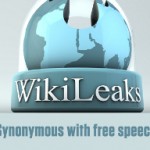-
Popular Posts
- Who Is Craig and What’s His List?
- How to Find Free Shipping E-tailers
- 5 Top Sites for Last Minute Travel Deals
- How Do Boomers and Seniors Use the Internet?
- Should You Join Facebook Now?
- Six Tips for Taking the Social Networking Plunge
- Better Bookmarking with Delicious
- Five Reasons You Can’t Afford to Dismiss Facebook and Other Social Networks
- Patient Websites Provide Bridge to Family and Friends
- About Us
Categories
site sponsors
WikiLeaks: Is Anything Private?
 It will be many months–perhaps years–before the complete WikiLeaks story comes out. Just how did WikiLeaks acquire top secret military documents and state department cables? Do the leaks compromise national security or are they merely embarrassing the U.S. government? Are charges of sexual abuse against WikiLeaks founder Julian Assange valid or trumped up to discredit him? Is Assange a terrorist or a folk hero?
It will be many months–perhaps years–before the complete WikiLeaks story comes out. Just how did WikiLeaks acquire top secret military documents and state department cables? Do the leaks compromise national security or are they merely embarrassing the U.S. government? Are charges of sexual abuse against WikiLeaks founder Julian Assange valid or trumped up to discredit him? Is Assange a terrorist or a folk hero?
At this point we can’t answer these questions, and I suspect that we will ask many more questions before this story unfolds. But I have to admit that I come down more on Assange as folk hero than terrorist. Living through Watergate and the Pentagon Papers has made me suspicious of coverups and wary of efforts to silence the press. Assange has done us two favors:
- He made public information that U.S. citizens have a right to know.
- He dramatically illustrated astounding weaknesses in our computer security.
On the public information side, Assange documented rampant corruption in Afghanistan. No secret there. But the evidence is mind-boggling. For instance, in 2009 then Afghani vice-president Ahmad Zia Massoud flew into Dubai with $52 million in cash. Is this a government that the U.S. should be supporting and defending?
On the computer security side, the news has focused on whether WikiLeaks disclosures violate national security. To me, the more important issue is how our computer security could be so easily breached. Assange exposed our national security vulnerability, hopefully in time to allow us to fix it before cyberterrorists exploit this breach and do a lot more than embarrass military and state department officials.
Then there’s the question of individual privacy. If top secret security can be so easily breached, what chance do we have of safeguarding our own privacy and identity? We are already distrustful of the security of the information that we post on FaceBook. But Facebook seems small potatoes compared to the larger security issues. What about government documents–our tax returns and our social security records? What assurance do we have that our medical records are indeed private? Are our banking records secure? WikiLeaks supporters have claimed credit for crashing MasterCard’s computer systems in retaliation for the company’s decision to stop processing payments that fund WikiLeaks.
These are disquieting questions. It’s easier to scapegoat Assange than it is to address the hard issues of fixing computer security. Gary McGraw of security the firm Cigital put it simply. “We all live in glass houses, but it seems like we’re all focused on delivering faster, more accurate rocks that we can throw harder, instead of focusing on the fact that we’re living in glass houses. . . . If you step back and look at espionage and cybercrime and cyberwar, the only defense we have is building secure systems that work correctly.”
Categories: Safety & Privacy
I do think that cyberwar is inevitable. The possibilities are mind boggling–the stock market, defense. It is ironic that the Internet had its roots in defense. So that a cyberattack would not cripple our defense systems, the Department of Defense decentralized data, storing information at a variety of locations. They built a network to connect these computers–an internet.
Posted by: Marilynne Rudick on December 16, 2010 at 11:42 am
Hi, Marilynne, Thank you for your perspective on WikLleaks. People are killed and maimed for the corrupt Afghani politicians – the truth hurts but should be told. Do you think it might be possible that our next War could be fought in cyberspace? (not with missles, like “War Games”), but just with computers attacking General Motors, for example?
Posted by: Evy S on December 16, 2010 at 10:12 am
I love that you love WebOver50. I’m especially pleased that you like this post. The WikiLeaks story continues to raise interesting issues. Today’s Washington Post (http://tinyurl.com/25keh5s) has a good article on the “hacktivist” culture that is rallying around Assange and free press issues.
Posted by: Marilynne Rudick on December 12, 2010 at 11:48 am
Great article. I wasn’t sure what to make of the WikiLeaks story and this article helps provide needed perspective. I love reading your blog and look forward to the email feed I receive when a new blog is posted. My only concern is all ages need to be reading this.
Posted by: Ian on December 12, 2010 at 7:37 am